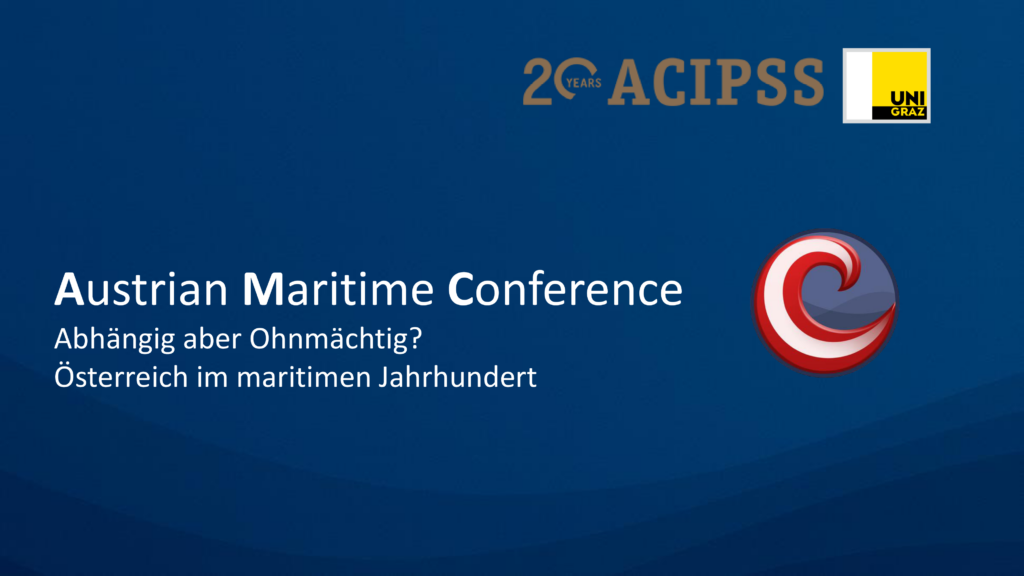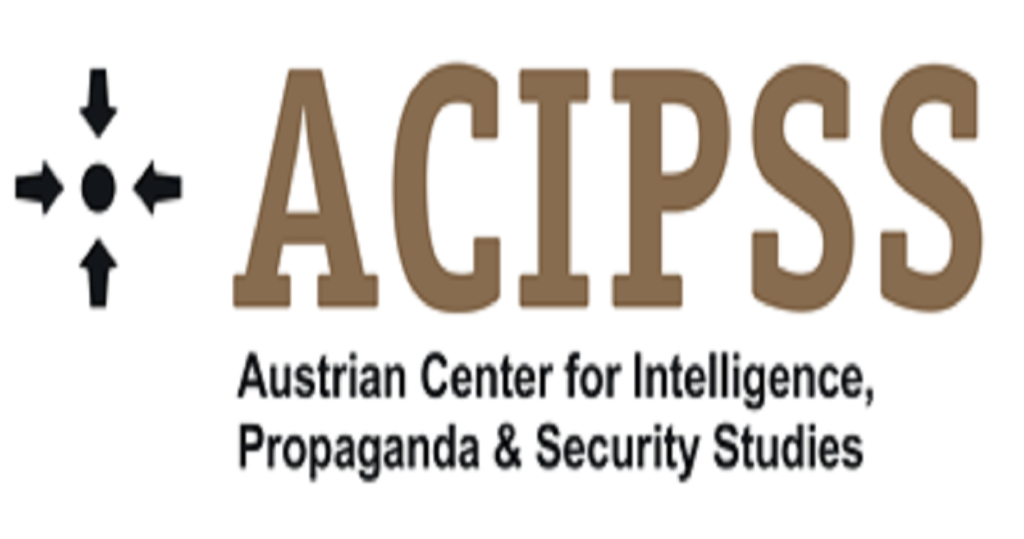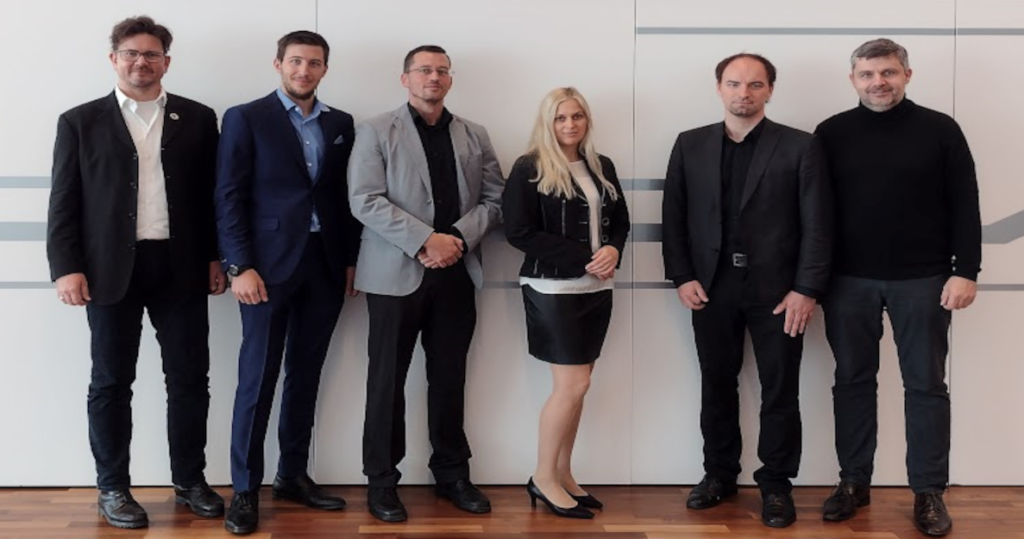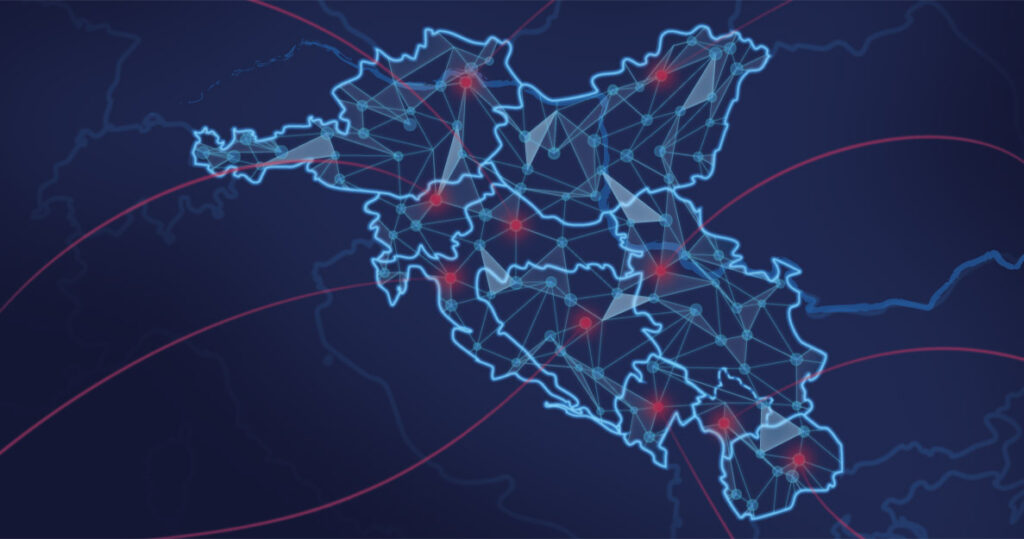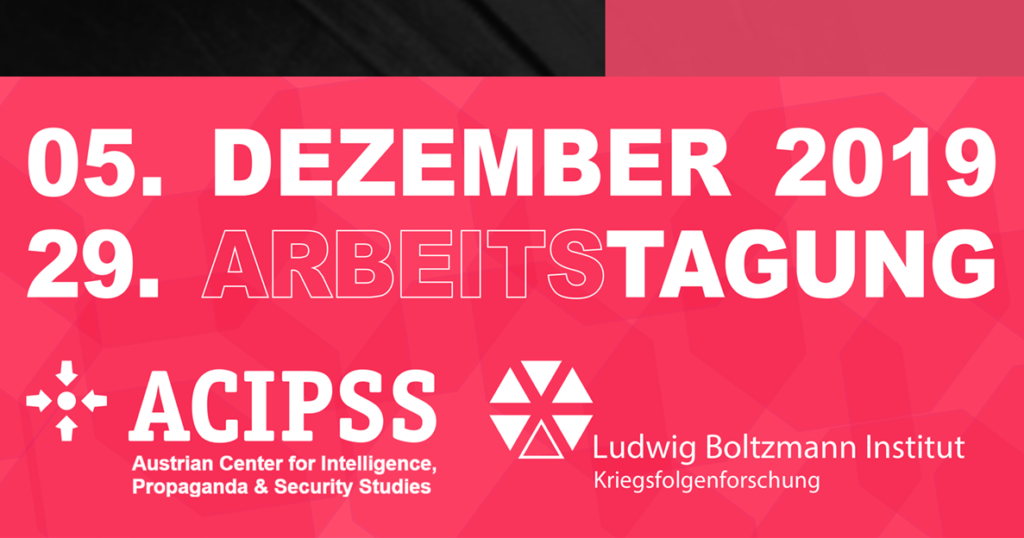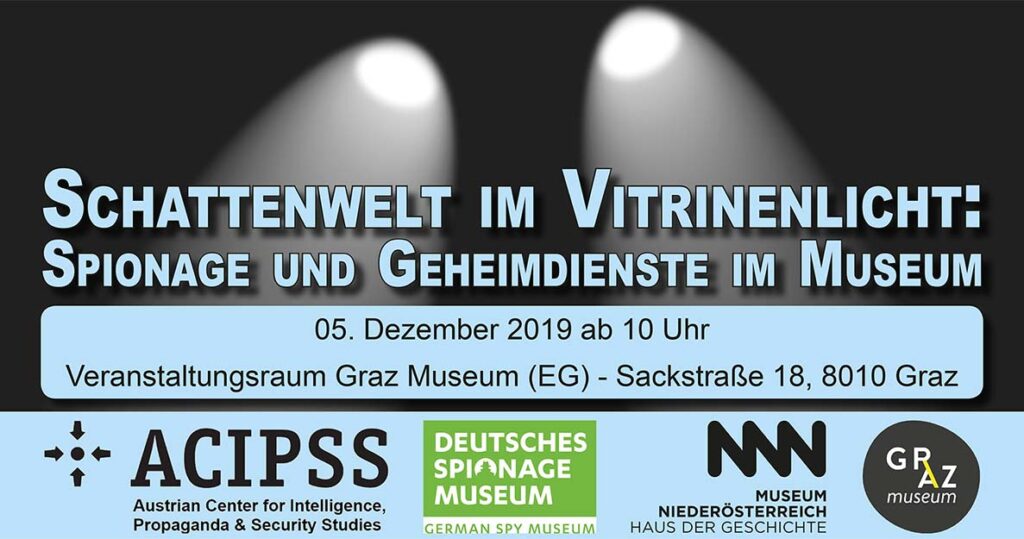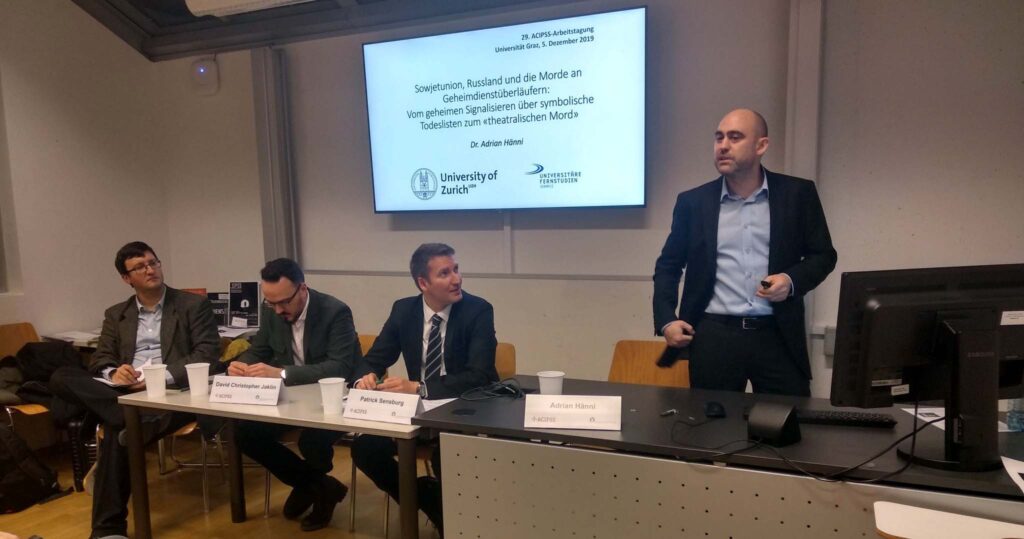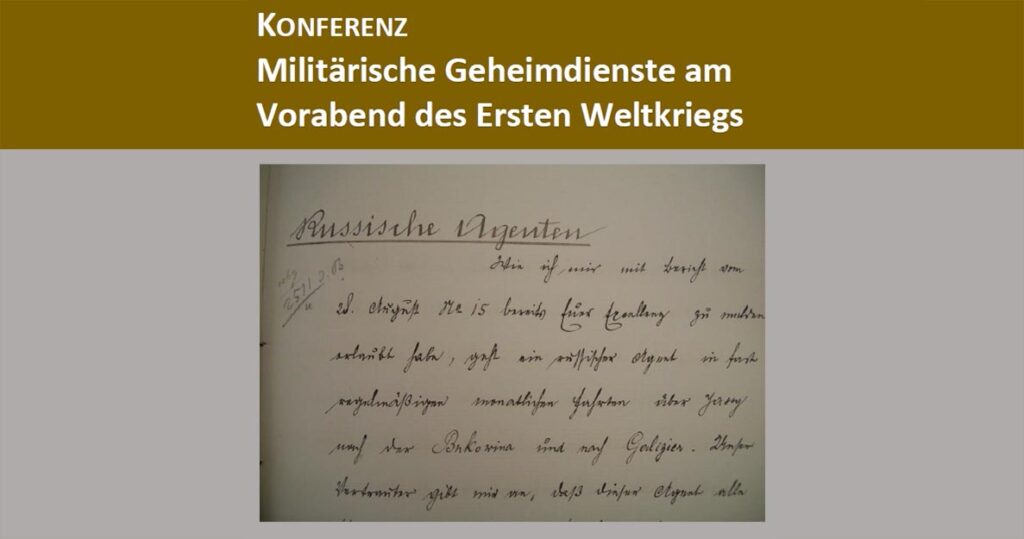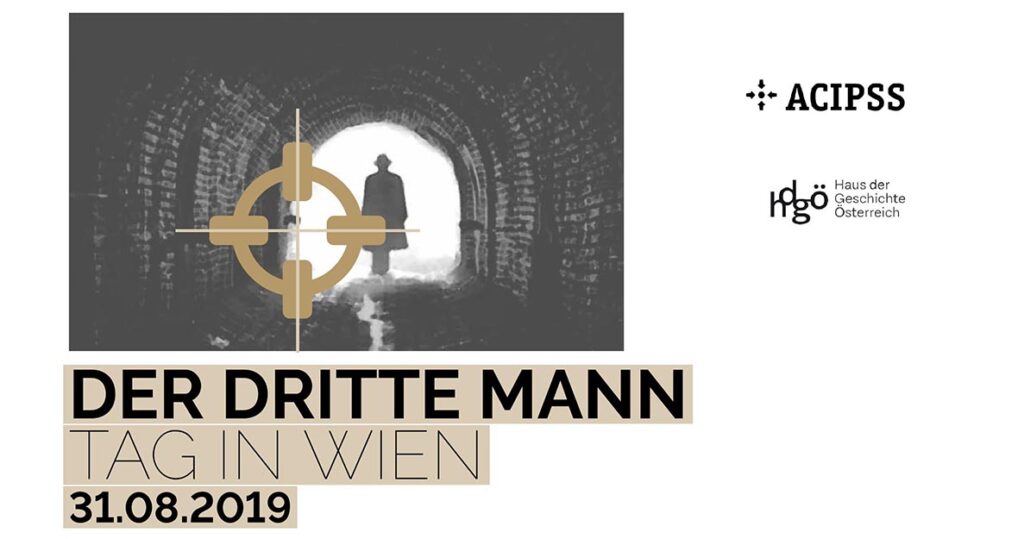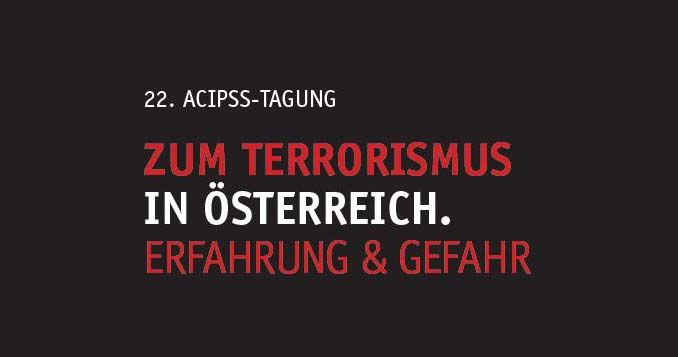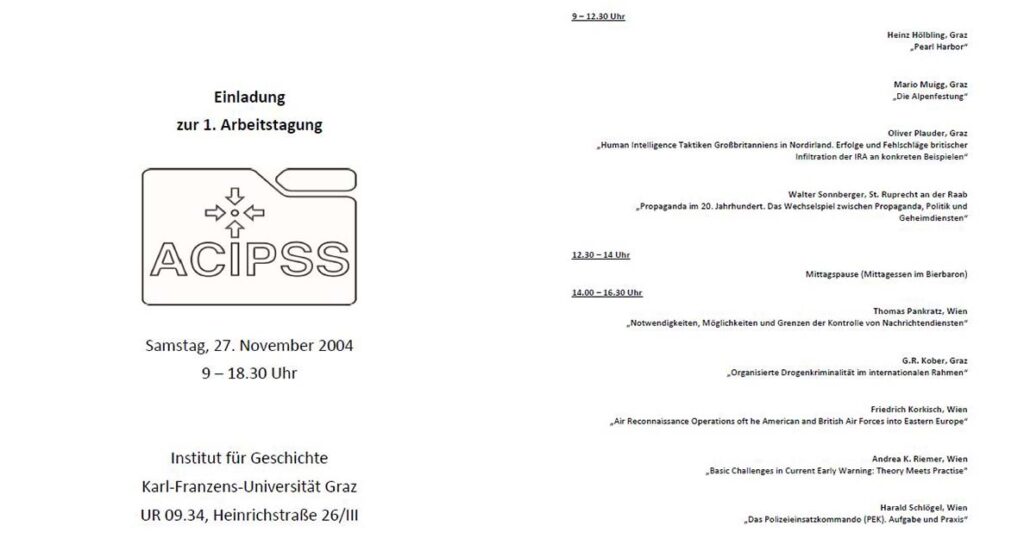Events
Am 14. November 2025 findet an der Universität Graz die Austrian Maritime Conference 2025 statt – eine hochkarätig besetzte Fachkonferenz zur
. . .
2 Jahre nach dem Terroranschlag in Wien: was wissen wir darüber, wie sich Personen radikalisieren und wie ist die Lage
. . .
ACIPSS veranstaltet in Kooperation mit dem LAND STEIERMARK, der UNIVERSITÄT GRAZ und SICHER LEBEN am 21.03.2023 um 18:30 Uhr im
. . .
Am Freitag, 23. September, fand bereits zum dritten Mal eine „ACIPSS Studientagung“ an der FH Campus Wien statt – wieder
. . .
Das Austrian Center for Intelligence, Propaganda & Security Studies und die Konrad-Adenauer-Stiftung(Berlin) luden am 17.9.2021 ausgewählte Gäste zur Konferenz “Seeking Influence and Power” (SIAP) in
. . .
Am 10.9.2021 findet am FH Campus Wien die 31. ACIPSS-Arbeitstagung zum Thema "Emotion(al) - Sicherheit und Gefühl" statt. Anmeldungen bitte
. . .
Am 23. Juni findet um 18:00-19:30 Uhr die Präsentation der Schwerpunktausgabe des JIPSS zum Thema „Das Streben nach Macht und
. . .
Am 7. Februar lud das Austrian Center for Intelligence, Propaganda & Security Studies (ACIPSS) in Kooperation mit dem Fachbereich für
. . .
Am 5. Dezember 2019 lud das ACIPSS gleich zu zwei Veranstaltungen ein. Am Vormittag präsentierten Dr. Christopher Nehring und Mag.
. . .
Am 8. November fand in Wien eine weitere Veranstaltung zur Geschichte von Geheimdiensten statt, basierend auf einer Kooperation der Universität
. . .
Projects
Ongoing projects
Dependent but Oblivious? Austria’s Maritime Role in the 21st century
Project head: Jeremy Stöhs
Project partner: REWI Universität Graz – Österreische Gesellschaft für Landesverteidigung und Sicherheitspolitik in der Steiermark – The Defence Horizon Journal
Austria has no coastline, no direct access to the world’s oceans, and entertains no navy. Still, its security and prosperity are directly linked to what happens across the global maritime commons. While the average Austrian citizen will spend little time pondering the complexities that govern human interaction at sea, one would expect the government, ministries, universities, industry, think tanks, and other NGOs to take interest in maritime affairs. In theory, it would be within their respective means to undertake efforts in supporting maritime security whilst hedging against potential risks and threats emanating from events at sea.
More than a century after being stripped of its littorals by the provisions of the Treaty of Saint Germain, Austria’s maritime tradition still reverberates in some quarters: from Don Juan de Austria and the Battle of Lepanto and Admiral Tegetthoff’s tactical feats in the 19th century all the way to the trailblazing Austrian engineers who invented the propeller, torpedo, and hovercraft. But does this history suffice for this small, neutral, and landlocked European state to provide fertile ground for contemporary maritime discussions?
This ACIPSS research project explores whether Austria is still a place of maritime thinking. It aims to 1) examine Austria’s maritime interests and activities, 2) detail its corresponding economic, industrial, and security-related considerations, 3) identify thought leaders and pioneers of industry, and 4) analyze their impact and contributions to the broader discussion of contemporary maritime affairs in a globalized era. In doing so, the project charts new waters in the understanding of sea power and contributes to the discussion of maritime strategy and security beyond the English-speaking world.
Media Literacy - For a confident handling of information in an increasingly complex media world
Project team: Stefan Auer, Cordula Simon
"Fake News" and Radicalization
Buzzwords like fake news, mis- or disinformation, post-truth, filter bubbles, echo chambers or mendacious press and framing have found their way into common usage. Despite this awareness, real and fake information are often difficult to distinguish. For this, we want to provide students with a toolkit for what research calls medial literacy – the ability to perceive media and information critically. Since radical groups in particular like to take advantage of the opportunity to spread news with questionable content, it is now more important than ever to provide young people with knowledge that can be used to effectively counteract any radicalization and polarization, and thus arm them on their way to becoming democratically educated and media literate citizens.
Practical approach
After a brief introduction to the topic and illustrative material to tie in with the applicable curriculum in history or civic education, the workshop will move on to practical application as quickly as possible: Many exercises, especially for research, will only be possible to implement using a smartphone: How can you tell if an article is fake news? What about allegedly genuine photos, fake social media accounts, manipulated tweets and much more?
All exercises and examples will be constantly adapted and updated to ensure relevance to the present. All three parts are united by the basic idea of promoting the most unbiased, critical thinking and practically applicable media competence possible in the participants.
Supervision
Mag. Stefan Auer and Mag. Cordula Simon BA from the Austrian Center for Intelligence, Propaganda and Security Studies (ACIPSS - www.acipss.org) will supervise the project. The workshops will be subject to a subsequent evaluation with the involvement of the class and the teaching staff in order to ensure a high level of quality assurance. A comprehensive project report will be produced once a year.
Contact: s.auer@acipss.org, cordula.simon@acipss.org
Completed projects (selection)
Research & Teaching
ACIPSS and its academic leadership support numerous projects based in Austria and beyond examining a wide-range of topics spanning the globe. Below is a selection of completed and ongoing research projects being conducted under the umbrella of ACIPSS and by ACIPSS staff as well as theses supervised and courses given.© 2004 - 2025 ACIPSS. All Rights Reserved.
